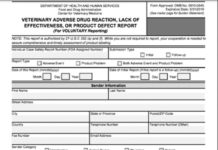Dog Sniffing Food But Not Eating
If your dog normally has a good appetite, but suddenly stops eating his food, you should be concerned. However, if your dog is always a picky, slow eater, and he goes on strike for a meal or two, there is usually nothing urgent to be worried about.
Progesterone Test for Dogs and the Female Dog Heat Cycle
Most progesterone tests for dogs are done through the veterinary office, using radioimmunoassay (gold standard) or chemiluminescence immunoassay, but progesterone home test kits are available if needed.
A Guide to the Top Antibiotics for Dogs
Antibiotics are the best weapon in our medical arsenal for fighting bacterial infections in dogs. Prescribed and given appropriately, antibiotics give our dogs the best chance at recovery from an infection.
Joint Supplements for Dogs
If your dog has been diagnosed with a joint disease such as arthritis, then youre probably no stranger to the world of joint supplements for dogs. Just visit your local pet store, and you will see that options abound. The choices can be confusing. There are chews, powders, and even diets that claim to improve canine joint disease. But which of these supplements are legitimate, and how can you tell?
Reporting Dogs’ Adverse Reactions is Your Duty
It seems that is rare for a week to go by that we dont hear about - or even experience - yet another pet illness or reaction to animal food, drugs, vaccines, or pesticides. At times, Whole Dog Journals articles and blog posts will include the advice to report any adverse events. And its excellent advice - so heres when, how, and why you should report these events.
Steroids for Dogs: Pros & Cons
Steroids are perhaps one of the most ubiquitous medications in the veterinary world. They can be used for a host of problems ranging from inflammation and allergies to autoimmune disease. While they are incredibly useful and diverse medications, steroids are not without significant side effects. It is important to know why they are used and how they can best be used. It is also critical to realize the possible negative effects and interactions that can occur. Steroids are not benign.
Over-the-Counter Flea Medicine for Dogs
Last month, in Bravecto
Prescription Oral Flea Control Medication for Dogs
For several reasons, veterinarians tend to put the most stock in prescription oral or topical flea medications than any other preventatives. In fact, these are the two most effective solutions for killing fleas but they aren't without potential side effects and they should represent only a part of a dog owner's efforts to control fleas.
Prescription Drugs for Dog Arthritis Pain Relief
Hundreds of drugs developed for human pain are used by veterinarians to treat chronic pain in dogs, but only nonsteroidal anti-inflammatory drugs (abbreviated as NSAIDs and pronounced EN-seds") and two non-NSAID prescription drugs (Galliprant and Adequan) have been approved by the U.S. Food and Drug Administration (FDA) for canine use. For many veterinarians
Medical Marijuana for Dogs?
Would a dog benefit from using medical marijuana? Legally, they're not allowed to, but many believe it could relieve pain the same way it does for humans.
Dog Behavior Medication Types
Knowing the properties of both daily and as-needed medications for your dog gives you an advantage when tackling canine behavioral problems.
Behavior-Modifying Drugs for Dogs: Medications for treating fear, phobias, and anxiety in dogs
Separation anxiety, aggression, fear of humans, fear of other dogs - though common, these pet behaviors indicate your dog may be suffering on a neuro-chemical level. How anxiety medications work in humans is still a considerable mystery, but we know that some also work on dogs. Can they help YOUR dog live a less stressed life?


















